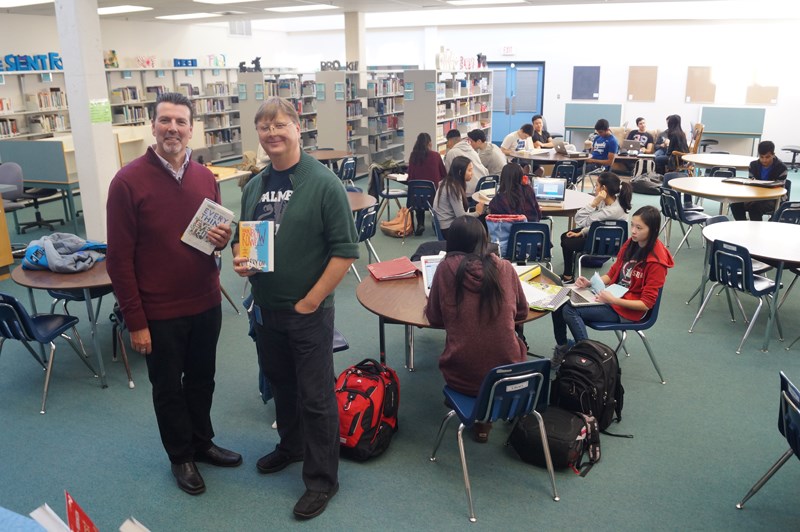School libraries are just as important for learning these days, as they were when the printed book was the predominant medium for learning.
In fact, according to Richmond School District’s library coordinator Gordon Powell, libraries are undergoing a transformation that will prove them to be as valuable, if not more, than ever before.
“There’s certainly more interest in providing digital resources, and libraries have moved away from relying only on print resources,” said Powell.
“But libraries are still an integral part of the learning process,” he added.
No doubt, print stocks are declining as non-fiction sources move online, however, libraries and the librarians who serve this long-standing institution now serve many different but equally important roles.
In the realm of librarians, libraries are now being described as “learning commons.”
Librarians such as Powell describe a learning commons as a shared space designed to engage students beyond simple research to a more exploratory and collaborative learning experience. It allows students to create their own environment to improve learning.
Learning commons aim to foster intellectual engagement with a free exchange of ideas and dialogue, be it online or in a designated physical space.
Whereas libraries were once rows upon rows of book stacks, they are slowly becoming welcoming places for students to engage in a wide range of activities.
At Palmer secondary, teacher-librarian Tom Morley is helping to transform the school library into a learning commons.
In one corner there are couches for dialogue; in another, a row of Mac computers for the likes of humanities research; a side room has a green screen for video production; and in another corner, space for a 3D printer (Morley awaits adequate funding).
Morley’s library has seen fewer and fewer books as the years of the digital revolution have progressed.
But that doesn’t mean a new library at a new school will be any smaller than existing ones, said Powell.
“Yes, there’s more room for a class or two to work in the library,” he said.
But in place of book space, has come “maker space,” said Powell.
Of course, amidst this evolving learning commons are stacks of fiction books.
“There will always be a place for books,” notes Powell.
But as far as non-fiction goes, as a wide range of information becomes more accessible to students online, the role of the librarian is becoming ever so important, Powell contends.
“It’s not so much that kids can’t find out anything online, but rather there is so much stuff out there that they need a little hand holding at the outset,” said Powell.
In an emerging era where anyone can effectively be a publisher, librarians will need to help students sift through what is credible and what is not. They, along with teachers, must also show students how to conduct balanced research.
Powell calls this process becoming “information literate.”
Information literacy has been proven to improve student achievement, according to the International Association of School Librarianship.
Meanwhile, school librarians — who are also expected to teach a handful of classes — are also at the forefront of technology being introduced into schools.
“Teacher-librarians are good instructional partners with teachers in incorporating technology in the classroom,” said Powell.
All too often, in Richmond schools, one may notice the ipad cart is typically stationed in the library when the tablets are not in use. This is indicative of how libraries are integrating physical and virtual environments in order for the student to create new, personalized methods of research in order to adapt to a rapidly changing learning environment.



